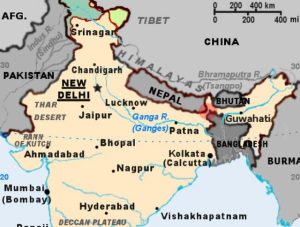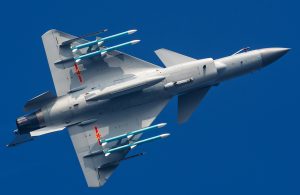Indian media reported that New Delhi has deployed Rafale fighter jets and the Russian-made S-400 air defence system along the strategically critical Siliguri Corridor – often referred to as the “Chicken’s Neck.”
This narrow strip of land in northern West Bengal connects mainland India to its northeastern states and borders Bangladesh, Nepal, Bhutan, and China.
According to Zee News, an Indian broadcaster, the move signals a significant shift in India’s strategic posture, turning attention from its western border with Pakistan toward the east.

The deployment follows India’s recent Operation Sindoor against Pakistan, launched in response to the April massacre in Pahalgam, Indian-administered Kashmir.
Tensions between India and Pakistan deescalated after reported US mediation prevented the standoff from escalating into full-scale war.
Citing The Asia Live, Zee News reported on Thursday that while tensions with Pakistan have cooled down, Indian defence planners are now increasingly focused on developments in Dhaka and Beijing.

Recent Chinese military exercises near the India-Bhutan border and rapid political changes in Bangladesh have triggered alarm in New Delhi, it reported.
Particularly concerning, the report claimed, is the perceived alignment of Bangladesh’s interim government towards China and Pakistan. This potential axis is viewed in India as a threat to the strategic balance in the eastern theatre, it said.
In response, according to the report, India has restricted Unmanned Aerial Vehicle (UAV) operations within 10 kilometres of its international borders and ramped up aerial surveillance along the eastern frontier.
Adding to India’s concern are reports that Bangladesh is in talks to acquire Chinese J-10CE multirole fighter jets, it said.

According to the report, the Indian military has now adopted a multi-layered deterrence doctrine, integrating real-time ISR (Intelligence, Surveillance, Reconnaissance) capabilities, cyber and electronic warfare systems, tri-service coordination, and the fortification of roads, tunnels, and railways within the Siliguri Corridor for rapid mobilisation.
Indian External Affairs Ministry spokesperson Randhir Jaiswal recently said that India is “closely monitoring developments in the region” and will respond decisively if necessary.

